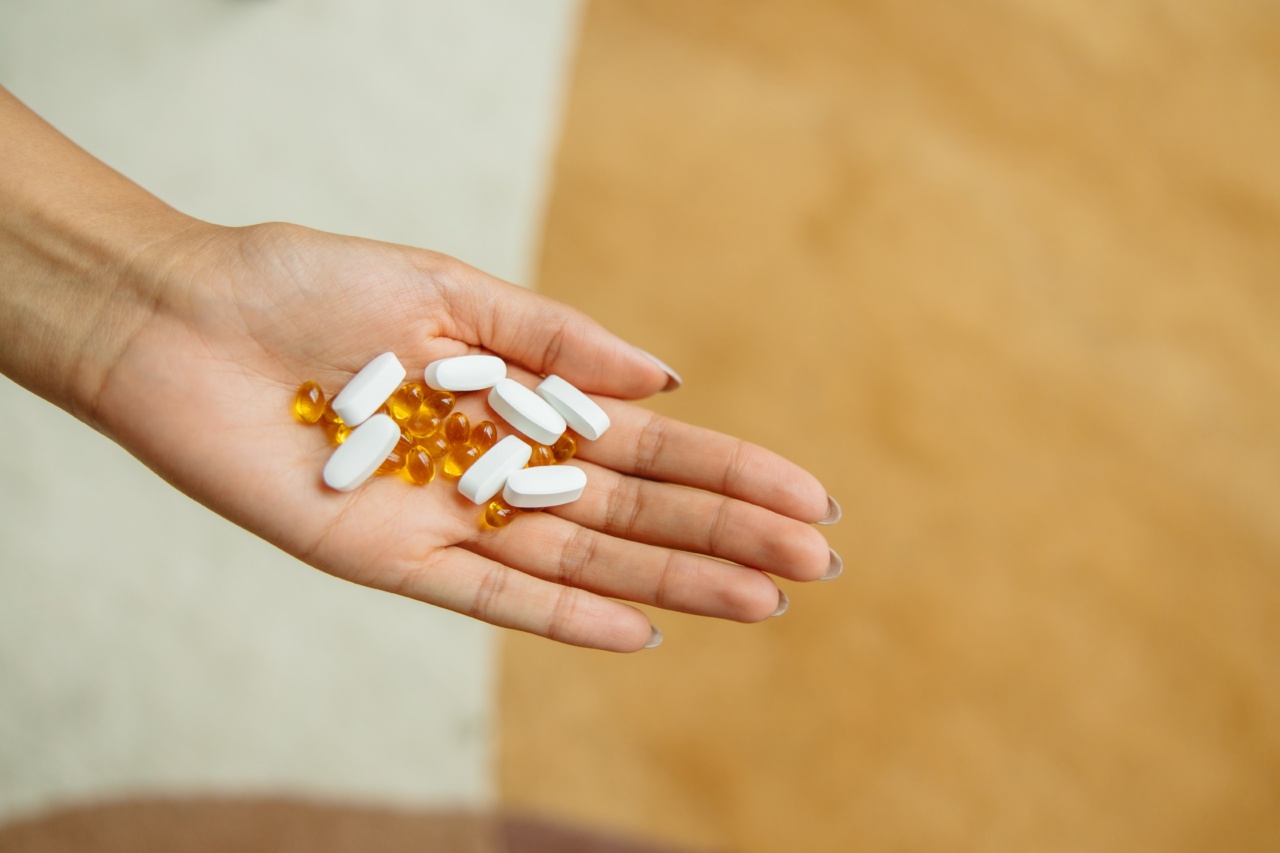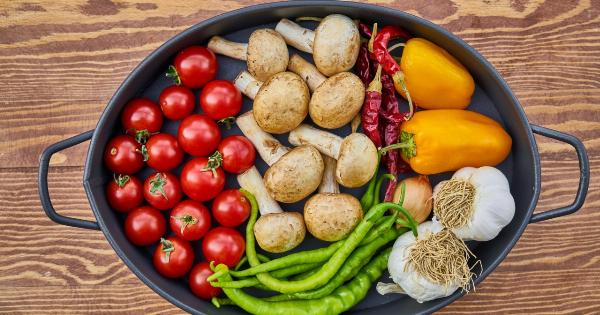PMS, or premenstrual syndrome, is a condition that affects women in the days or weeks leading up to their menstrual periods.
It is characterized by a range of physical and emotional symptoms, including bloating, fatigue, mood swings, irritability, and food cravings. While there is no cure for PMS, adopting a healthy diet can help alleviate some of the symptoms and provide relief.
In this article, we will discuss the best diet practices for PMS and how making certain dietary changes can make a significant difference in managing the symptoms.
1. Increase Your Calcium Intake
One of the most effective dietary strategies for managing PMS symptoms is to increase your calcium intake. Calcium has been found to help reduce menstrual pain and mood swings. It is also known to promote relaxation and relieve muscle tension.
Good sources of calcium include dairy products like milk, yogurt, and cheese, as well as leafy green vegetables like kale and broccoli.
2. Consume Magnesium-Rich Foods
Magnesium is another essential mineral that can help alleviate PMS symptoms, particularly those related to mood changes and irritability. Foods rich in magnesium include nuts, seeds, legumes, whole grains, and dark chocolate.
Incorporating these foods into your diet can help regulate serotonin levels in the brain, which in turn can improve your mood and reduce irritability.
3. Include Complex Carbohydrates
Complex carbohydrates are a better choice than simple carbs when it comes to managing PMS symptoms. Simple carbohydrates found in sugary snacks and drinks can cause blood sugar levels to spike and then crash, leading to mood swings and fatigue.
On the other hand, complex carbohydrates provide a more stable source of energy and can help regulate mood. Opt for whole grains like quinoa, brown rice, and oats, as well as fruits and vegetables.
4. Don’t Forget About Fiber
A diet high in fiber can aid in reducing bloating and constipation, common symptoms of PMS. Including foods like whole grains, fruits, vegetables, legumes, and nuts can help ensure you’re getting enough fiber in your diet.
Moreover, fiber-rich foods can help stabilize blood sugar levels and keep you feeling fuller for longer, which can be particularly useful during PMS when food cravings are common.
5. Focus on Healthy Fats
Incorporating healthy fats into your diet can also help alleviate some PMS symptoms. Omega-3 fatty acids, in particular, have been found to reduce inflammation and pain associated with menstruation.
Sources of healthy fats include fatty fish like salmon and mackerel, as well as avocados, nuts, and olive oil.
6. Limit Salt and Sodium Intake
Excessive salt and sodium intake can contribute to water retention and bloating, which are already common symptoms of PMS.
To minimize these symptoms, it’s important to limit your consumption of processed and packaged foods, as they tend to be high in sodium. Instead, opt for fresh, whole foods and use herbs and spices to flavor your dishes.
7. Stay Hydrated
Drinking plenty of water is essential for overall health, but it can also help reduce bloating and fluid retention during PMS.
Aim to consume at least eight glasses of water per day, and consider incorporating hydrating foods such as watermelon, cucumbers, and citrus fruits into your diet.
8. Reduce Caffeine and Alcohol
Both caffeine and alcohol can exacerbate PMS symptoms, including irritability, breast tenderness, and anxiety. It’s best to limit or avoid these substances during the weeks leading up to your period.
Opt for herbal teas or decaffeinated beverages instead, and if you choose to drink alcohol, do so in moderation.
9. Experiment with Herbal Remedies
Several herbal remedies have been found to provide relief from PMS symptoms. Chasteberry, evening primrose oil, and dong quai are among the herbs commonly used to alleviate symptoms such as breast tenderness, mood swings, and bloating.
It’s important to consult with a healthcare professional before trying any herbal supplements to ensure their safety and effectiveness.
10. Pay Attention to Portion Sizes
Lastly, it’s crucial to pay attention to portion sizes and listen to your body’s hunger and fullness cues. Overeating or indulging in unhealthy food choices can worsen PMS symptoms, both physically and emotionally.
Opt for balanced meals and snacks that include a variety of nutritious foods, and try to eat mindfully, savoring each bite.































